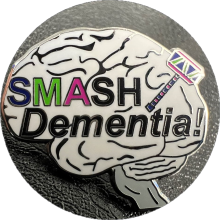SMASH Dementia - Healthy Aging and Disease Registry
Individuals living with dementia often have symptoms that we don't understand. This can include mood symptoms like depression and anxiety that preceed thinking issues by many years. Some people develop difficulties with sleep such as insomnia or broken sleep. Still, others spend all day sleeping and can't wake up during the day even to eat. Scientists and doctors don't understand where these sleep, mood, and arousal symptoms come from. Our doctors and scientists think these symptoms may be linked to the abnormal proteins that build up in the brainstem, and that the symptoms may be related to each other. We therefore designed this registry--which stands for Sleep , Mood, and Arousal in neurodegenerative dementias: brain-Stem Hypothesis (SMASH) to test the relationship between these symptoms.
The SMASH Dementia - Healthy Aging and Disease Registry is a study designed to understand how these symptoms link to different types of dementias such as Alzheimer's disease, Lewy Body Dementia, Parkinson's disease dementia, and Frontotemporal dementia, each of which have a different pattern of protein buildup in the brain. The study is designed to allow participants at all stages to participate; it is mainly done from home to minimize the number of visits to the University, and we designed the tasks to be short and hopefully fun. This is currently a pilot study, meaning we will design future studies based on the feedback of people that participate. For example, participants will use biosensors (like wrist bands) that track activity, and patients can let us know if they are easy to wear and use.
